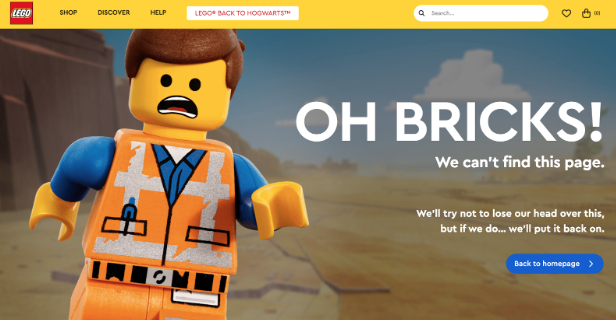In 2020, we launched a podcast called Alt Marketing School, which completely kicked off the school as you know it today.
Honestly, I thought I had it all figured out at the time.
Tsk, I have had podcasts before. How hard can this be?
I am not proud to admit I was somewhat cocky, but without that confidence coming from a few old podcast shows under my belt, I would not have learned what I discovered in the process.
Compared with 2018 figures, the number of people who have listened to at least one podcast in their lives increased by 20 million, and an additional 14 million people described themselves as weekly listeners.
If you are starting out, do not worry. You can great a fantastic show even as a podcast newbie. By the end of this, I hope you can take something away from yourself when looking to start your own podcast.
Podcast goals based on your listeners
Let’s get back to your audience – your listeners, those old friends. You may be like, “but Fab, I have no listeners yet. I just got started!” Understanding who you are looking to attract is vital when thinking about podcast goals.
The first thing they’ll want to know about any podcast is the same: why should I spend my time listening to this show?
If we believe that the world goes by via an exchange of value, the time your listeners will put into your podcast is one part of this exchange. What value are you looking to bring back to them?
Undoubtedly, if you want people to listen, you must add value to their lives. What’s the benefit to them? Is it to learn? To be entertained? To feel a social connection?
The value is what keeps them connected. In fact, the deeper you can understand who your audience is, the deeper connection you’ll create with your listeners.
Create a listener persona
Let’s give them a fictional name. Say hello to Becky. Becky is a professional who just came across Alt Marketing School. She is looking to start freelancing and add marketing to her skillset. She is a side hustler, commuting into London every morning for about 45 minutes.
In fact, Becky loves that she can listen to various episodes, mixing audio lessons and interviews, all in less than 1 hour. Regarding the podcast, we came up with the idea after a year to alternate solo episodes and interviews to add an element of education since this is what our audience comes back to us for.
We had to adapt to ensure we’d give our audience what they wanted and keep it fresh.
This leads me to the topic of consistency.
A podcast can choose solo delivery, two-host banter, roundtable discussions, fiction, live recordings, and interviews. It can even mix them into a fairly predictable pattern. For example, you have a weekly show, but there’s an interview once a month instead of the usual roundtable discussion.
Start by thinking up several different types of people to represent your audience. Afterwards, give them names and ask yourself:
- What are their goals?
- Schedules?
- Social media choices?
If you don’t understand this, there’s a good chance you’ll end up alienating potential listeners. If your podcast is longer than the average commute, for example, lots of commuters aren’t going to listen to it.
The truth about discoverability
Let’s talk about discoverability, or how easy it is for folks to find you in terms of your podcast goals. Discovery depends on factors like keywords and search engine optimisation. For example, if a potential audience searches for the name of your podcast, you want to show up near the top of their list.
For that to happen, you’ll need a good page on your website with a collection of your episodes and great SEO. Also you cannot underestimate the power of a robust promotional plan.
This will overall keep Google happy. There is something to be said about optimising your podcast for podcatchers. Some people will check listings on their podcatcher – a program for downloading podcasts – iTunes, Soundcloud, Pocket Casts are some examples.
You’ll need to add professional and enticing artwork and descriptions for these services to reach these listeners.
The right tools and branding
Great branding is not just a matter of discoverability. The title, artwork, and a polished audio introduction will clearly explain the show and help you achieve your podcast goals.
Another excellent tool for podcasts and setting your podcast goals based on an interview format is the interviewer.
Now, I was a journalist in the past life (over 12 years ago), which means I had time to practice my interviewing skills. How can you make your guests comfortable? Do you prefer following a rigid script or being flexible in your interview style?
Moreover, to make your guests feel at ease whichever way works for you. Happy guests will spread the word after you’re done. Make it about them. There is something to be said about choosing the right guests too.
Every topic and every interview should fit the vision for your show. In fact, your content is your value, and quality beats quantity. A listener can switch to another podcast at any time. Your audience will stay engaged and happy if you’ve crafted your episodes well.
In truth, the end of each episode can be thought of as a branding opportunity.
Listeners could be left hearing a familiar tune and perhaps a teaser for the next episode. Think of your favourite podcasts. You probably could recognise the jingles out of a hundred. That consistency is key to loyal listeners.
Take time drafting clear podcast goals
All in all, successful podcasts have clearly defined goals, and that’s something your show should have too.
Make time to get clear on how you can provide the most value to your audience – work on a robust promotional plan, and the rest will follow.
Your podcast should support your business, but this doesn’t happen accidentally. To produce a great show, you must be clear about what you’re trying to achieve.
For example, Are you looking to generate direct income from online sales? Or are you playing the long game and looking for leads toward future sales? Perhaps you want to promote your brand without any direct, measurable financial benefit.
To help you further, here are three macro goals I tend to return to when in doubt (as a marketer of 13+ years, I am highly goals driven, yet I appreciate not everyone is like me!).
- Brand awareness (discovery by a new audience)
- Consideration (further engagement from your current audience)
- Conversions (sales or sponsorships)
Content and goals go hand in hand.
- A podcast with great content and no clear goal isn’t going to achieve anything.
- On the other hand, a podcast with a plan but no value won’t help you build a loyal audience.
Need help with launching your podcast to the masses? Steal our 12-week promotional plan.
Want more? Here's your invitation from the school ⤵️
We don’t teach you how to do more. We teach you how to do it better.
You don’t need more hacks. You need smarter foundations, better systems, and clarity that cuts through the noise.You got into this to make a difference. Let’s help you do that, with strategy and a whole lotta heart.
➡️ Find out how we can help via our all-access pass.



